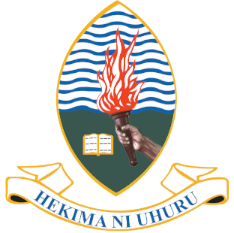
Techno-Economic Modelling and Analysis of Telecommunications Engineering Projects
Description
One major challenge with engineers is to talk Technologies rather than Products and Services which create value to the investors. In the telecoms industry Technology is just a MEANS to an end.
Telecommunication, like any other service, is a number game. You need to get a large number of customers and especially high-value customers for the business to be profitable. However, so as to attract many customers and keep the high-value customers in particular it is important to produce a good design and planning of the network and offer high quality and innovative Products and Services.
The Telecoms industry is driven by products and services demanded by customers. It is, therefore, necessary to consider both users and usage requirements on one hand and service characteristics on the other in determining the most cost-effective way to fulfill the needs of the customers.
In this short course, we shall go through principles of Techno-Economic Analysis/evaluation of telecommunication projects by considering both technology solutions and modeling the solution to determine how much it costs to service a specific market. A good technical solution should meet both technical and economic requirements by minimizing the cost of service provision
Objectives
|
The goal of this course is to equip professionals with an understanding of a joint evaluation of telecoms solutions by considering both the technical solution and economic considerations when designing telecoms solutions taking into account users and usage patterns and their peculiarities within the Tanzanian operating environments. The course will empower participants to address marketing, business, technology, and operational considerations in helping to make managerial decisions on new or existing products and Services and hence improve telecommunications service provision in Tanzania. Some of the questions commonly asked by managers are as follows: |
|
|
1. |
Which Technical Solution is best from both technical and financial considerations? A company wants to offer a service, e.g. Internet to a specific group of users in a specific location and there are 3 possible network solutions at disposal such as 3G/4G, Satellite, and Cable. Which is the best solution based on both technical and economic considerations? |
|
2. |
Which service to offer to a specific market? You have services A, B, or C using the same platform (e.g. 3G). The question to answer is which service should be offered first in terms of better financial returns? |
|
3. |
What is the cost of getting a new product or service to the market and is it worth the efforts? The product team has some ideas about a new product. The engineers have to work on the technical solution to get the equipment needed and other requirements to support the new service. They carry out the design and prepare an RFP to get quotations for the solution or maybe managers can engage in-house engineers to design and cost the solution. But is it worthwhile to introduce the new product(s) or service(s)? |
|
This course intends to equip participants with the knowledge to carry out the type of analysis to enable answer questions like the ones highlighted above. |
|
Learning outcomes
|
Today’s telecoms networks and services are very complex making it difficult to make decisions on the viability of network solutions and products and services. There are also many different possible solutions for different markets and operating environments. A solution suitable for one market might not be suitable or even appropriate for another market. Please join us and arm yourself with the knowledge to understand how Techno-Economic Modelling and Financial Modelling of telecoms solutions can help you make a more informed decision on the best possible cause of action for technology and products and services solutions. Upon completion of the course, you will emerge out with the following capabilities: |
|
|
1. |
Understand the Tanzania operating environments from users and usage patterns, and their impact on technology solutions |
|
2. |
Network design methodologies (Coverage Limited Design Concepts; Capacity Limited Design Concepts; and Throughput Limited Design Concepts). |
|
3. |
Techno-Economic Analysis of Telecommunications Solutions and its inputs in evaluating technical solutions and introduction of products and services. |
|
4. |
Tariff Planning |
Topics
|
The Telecoms Industry and Status of Tanzania Telecoms Market and its challenges |
|
|
|
|
|
Telecoms Service Provision |
|
|
|
|
|
Telecoms Network Design and Planning |
|
|
|
|
|
Techno-Economic Analysis of Telecoms Solutions |
|
|
|
Target Group
Telco/MNO employees at different levels, suppliers of equipment and handsets, suppliers of different telecoms solutions and hardware including Value Added Services, staff from regulators (TCRA, TCAA, TIC, and NEMC, among others), and policymakers (e.g. ministry staff). This course is suitable for mid-level and senior staff who are responsible to make decisions on deployments, business planning, changes in regulations and licensing requirements, and policies that are anything decisions that would impact the cost of telecommunications service providers.
Private sector engineers and managers who engage in decision making in telecoms solutions and products and services on investments, choice of telecoms service providers or partners or supplier for telecoms products and services may also benefit from this course.
Course Materials
Each registered participant will receive a copy of instructors’ slides and other materials, such as references, papers, and policy documents used during the course.
Certificate of Attendance
Participants will be awarded certificates of attendance by the University of Dar es Salaam.
Fee
(1) TZS 800,000 (Tanzanians)
(2) USD 400 (Foreigners)
Payment
All payments should be made centrally through Control Numbers provided by the University of Dar es Salaam. After registration, a Control Number and invoice will be emailed to you using information you have provided in the registration system
